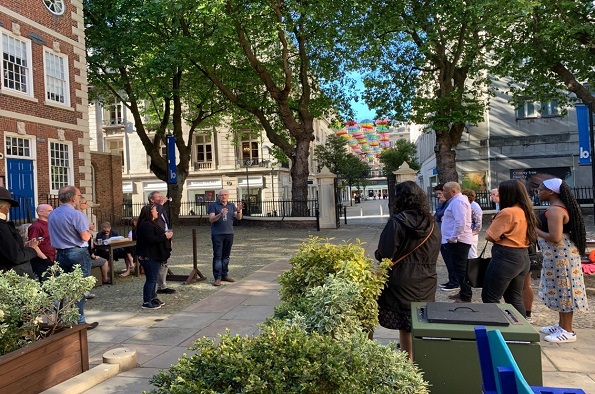
Women, Gender, Slavery, and Abolition in Brazil
- Dr Mary E. Booth
- Admission: This is a free event, however, please register via the Eventbrite link provided
- Book now
Add this event to my calendar
Click on "Create a calendar file" and your browser will download a .ics file for this event.
Microsoft Outlook: Download the file, double-click it to open it in Outlook, then click on "Save & Close" to save it to your calendar. If that doesn't work go into Outlook, click on the File tab, then on Open & Export, then Open Calendar. Select your .ics file then click on "Save & Close".
Google Calendar: download the file, then go into your calendar. On the left where it says "Other calendars" click on the arrow icon and then click on Import calendar. Click on Browse and select the .ics file, then click on Import.
Apple Calendar: The file may open automatically with an option to save it to your calendar. If not, download the file, then you can either drag it to Calendar or import the file by going to File >Import > Import and choosing the .ics file.
Professor Maria Helena Machado is a historian dedicated to the study of the social history of slavery, abolition, and post-abolition era in Brazil.
She has published on a variety of themes. Her first book (1987) was dedicated to the analyses of slave crimes in the five decades that preceded abolition, aiming to show how enslaved people organized themselves to impose limits to their work rhythms and establish bearable conditions of life in the coffee plantations of southeast Brazil. Her subsequent book (1991) explored enslaved people’s revolts and the radical political participation of freed, to be freed, and free poor people abolitionist movements. Professor Machado has also published on nineteenth-century diaries and travel literature in order to reconstruct Brazilian conceptions of abolition, race and gender vis a vis those in Europe and North America, including Brazil Through the Eyes of William James. Letters, Drawings and Diaries (2006). She additionally curates and publishes catalogues on nineteenth-century slavery and racial photography. In the last decade Professor Machado ‘s research has focused on slavery, women, and gender, including motherhood, wet-nursing, and Brazil’s ‘free womb’ laws, including a co-edited collection (with Camillia Cowling, Diana Paton and Emily West): Motherhood, Childlessness and the Care of Children in Atlantic Slave Societies (2020) which also appeared as special editions of Slavery and Abolition (2017) and the Women's History Review (2018).
‘In conversation’ with Prof Emily West (University of Reading) Professor Machado will discuss the significance of a gendered history of slavery within Brazil, shedding light on an important historiography that has often been overlooked in more Anglocentric accounts of Atlantic slave regimes. She will also consider the importance of interdisciplinarity for the study of women and slavery (including visual cultures) and explore some of the sources (and archival absences) that historians of women and slavery in Brazil have encountered. Finally, she will offer potential avenues for future research on women and slavery in Brazil and within the history of transnational Atlantic slavery more broadly.
